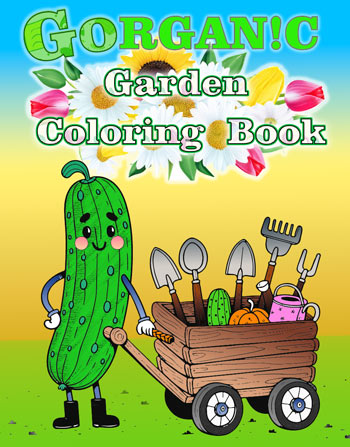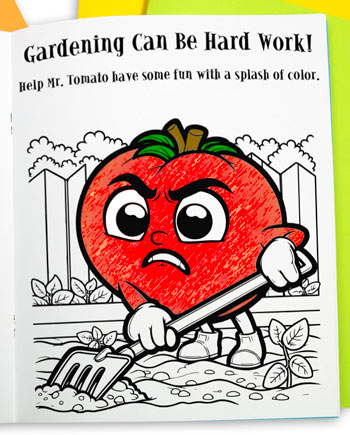10 Tips for Designing a Fun and Eye-Catching Coloring Book
Create inspiring coloring books for artists of all ages.
DocuCopies.com
Publishing your own coloring book is a great way to share your artistry with the world while helping others indulge their own creativity. Whether it's just for family and friends, your child's classmates, or a church youth group, creating a custom coloring book that stands out is an exciting challenge.
Learn how to design a coloring book that will keep people of all ages happy, stimulated, and engaged for hours with this helpful guide.
Know Your Audience
Age Group: Design with your audience in mind. Younger kids love simple, large shapes, while older kids, teens, and adults appreciate more intricate designs.
For example, coloring books for children often feature cartoon-like people, animals and plants. Meanwhile, older audiences appreciate the challenge of more complex illustrations such as flower bouquets, landscapes and other detailed imagery.
Interests: Think about what themes will captivate your audience, whether it's whimsical animals, enchanting fairy tales, or mesmerizing mandalas.
Create an Eye-Catching Cover

Bold Illustrations: Put a cool picture from inside the book on the cover to preview what fun awaits inside.
Vibrant Colors: While the insides are black and white, the cover should burst with color to grab attention. You may even want to show a design partially colored in with crayons or colored pencils. This will help entice viewers to jump right in and do a better job themselves!
Make the Title Stand Out
Readable Fonts: Choose large, clear fonts for the title and subtitle. This will help people of all ages engage with your coloring book.
Descriptive Titles: Use keywords that clearly describe the book's content, like "Jungle Adventure Coloring Book" or "Magical Mandalas for Relaxation."
Keep the Theme Consistent
Consistent Design: Keep a similar theme throughout the cover and interior pages for a cohesive and enjoyable experience.
Visual Style: Maintain a consistent illustration style throughout the book for a polished look.
Use High-Quality Illustrations
Detail and Clarity: Ensure all illustrations are crisp and clear. Sharp lines make for better coloring.

Variety: Mix simple and complex designs to cater to different skill levels and keep things interesting.
Plan a Well-Structured Layout
Margins and Bleed: Leave enough margin space so designs aren't cut off or scaled down. This means leaving at least 0.25" around the edges, with an additional 0.25" on the binding edge. If you want full-page designs and no blank margin, make sure to setup the pages with bleeds.
Spacing: Make sure there's enough space between elements on each page to avoid a cluttered look and provide ample room for coloring.
Add Interactive Elements
Prompts and Activities: Spice things up with prompts or activities like "draw your own creature" or "color by numbers." This will help users learn to express themselves in new and fascinating ways.
Creative Spaces: Include blank areas or doodle prompts for extra creativity.
Think About the Back Cover and Spine
Preview Images: Show a few sample images on the back cover to give a taste of what's inside.
Blurb: Write a fun and enticing description of the book's theme and what readers can expect.
Spine Printing: If ordering perfect-bound coloring books, extend the background color to wrap around the spine. Depending on the thickness, you may be able to add text to the spine as well.
Choose the Right Paper
Thick Paper: Use at least 28/70-lb paper to prevent bleed-through from markers and provide a satisfying feel.
Smooth, Matte-like Finish: Using a non-glossy paper reduces glare and makes coloring easier and more enjoyable.
Test and Get Feedback
Prototype Testing: Print prototypes to test out with your target audience to ensure the designs are fun to color. This could be as simple as donating a small batch of books to a kindergarten class, college art department, or nursing home!
Adjust Based on Feedback: Be ready to tweak your designs based on the feedback to improve the overall experience.
By keeping these tips in mind, you can create a coloring book that's visually appealing, fun to color, and a great creative outlet for people of all ages. Are you ready? Order custom coloring book printing today!

 Processing...
Processing...